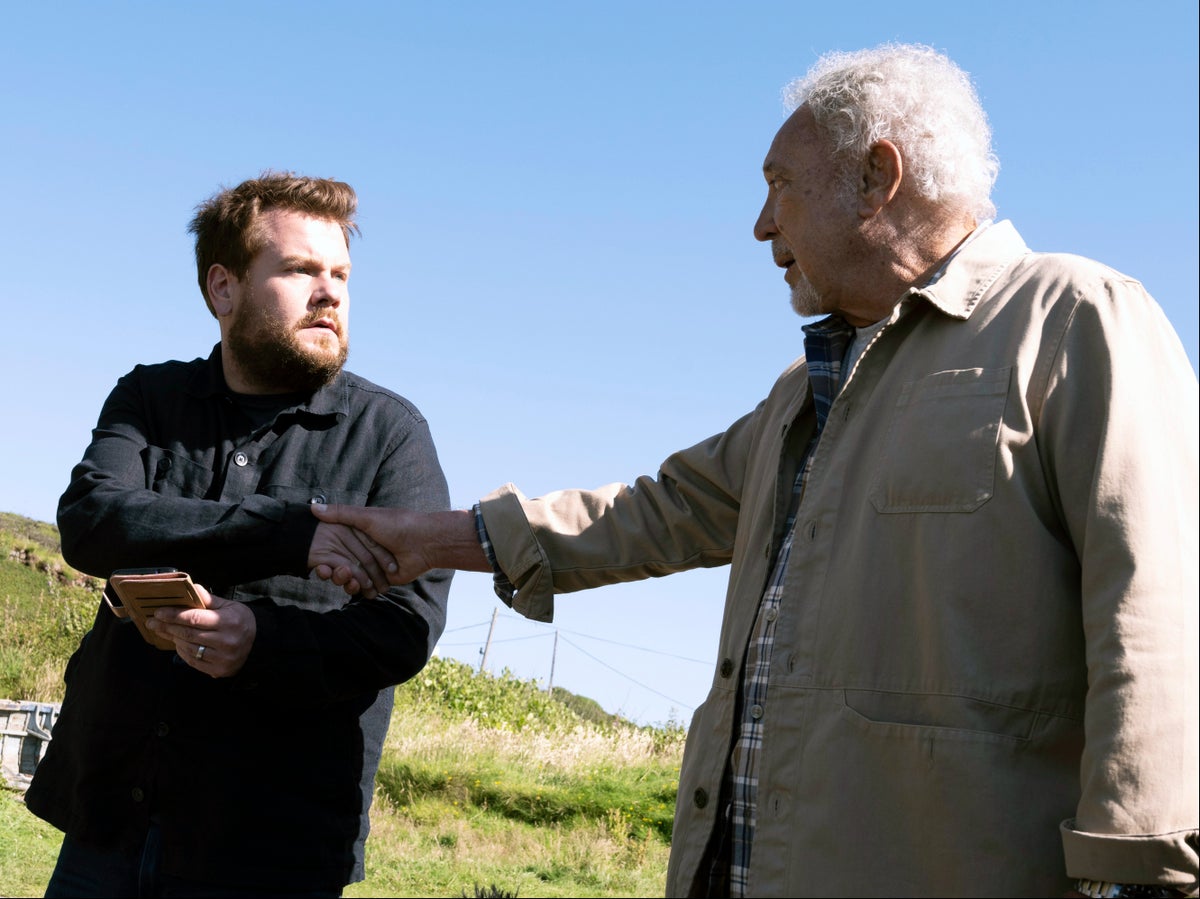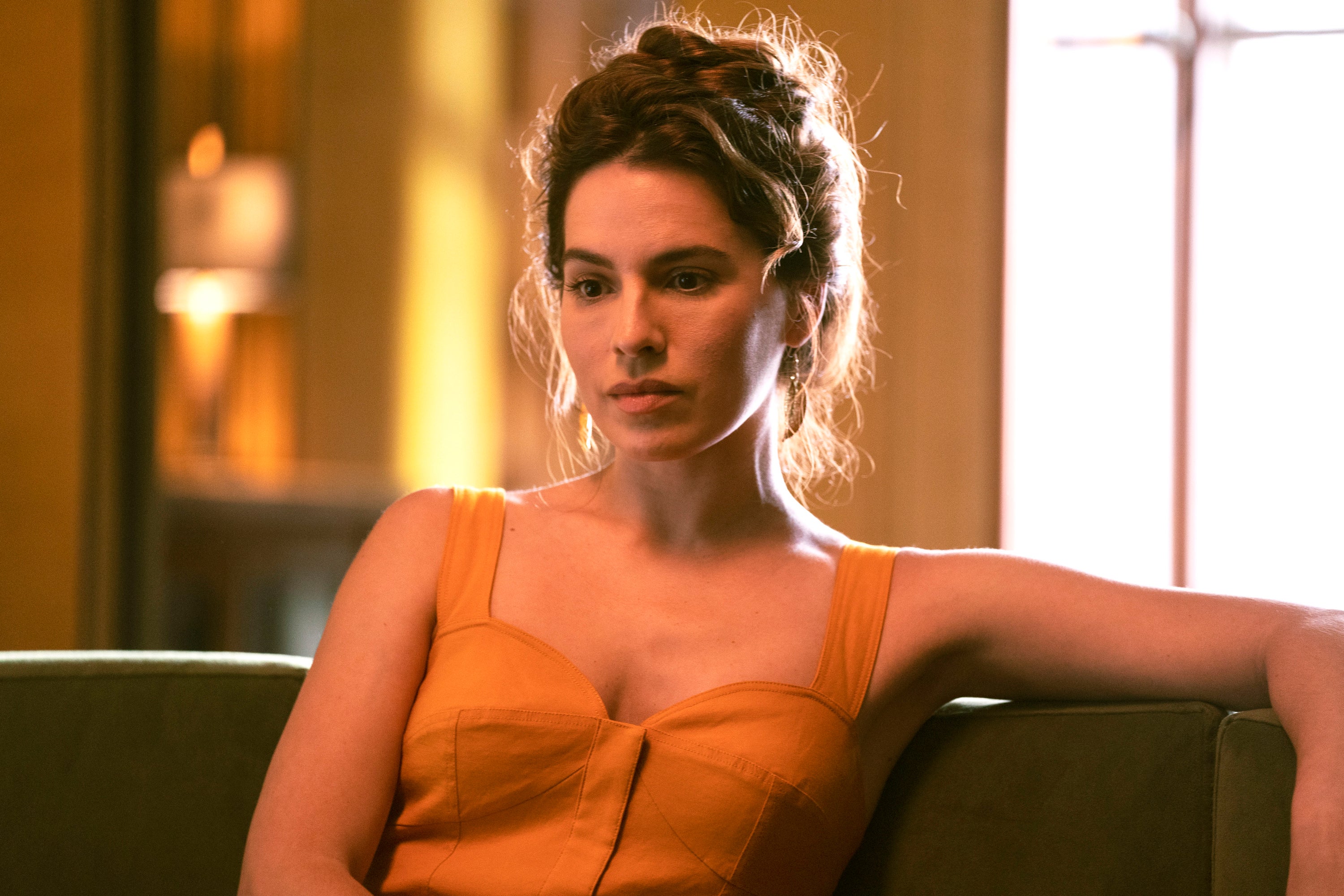
Watching the new Amazon Prime series Mammals, I was reminded of an unsettling – and maybe even apocryphal – Margaret Atwood anecdote. When the author of The Handmaid’s Tale asked a male friend why men fear women, she was told that men are afraid that women will laugh at them. When she asked women what they feared in men, they told her they were afraid of being killed.
In Jez Butterworth’s surreal and funny miniseries on love and infidelity, James Corden – in an unfortunate callback to his recent tabloid troubles with a New York City brasserie – plays Jamie, an ambitious London chef about to open his dream restaurant. He and his wife, Amandine (Melia Kreiling), are on a babymoon to Cornwall when a series of notable events occur almost at once: the cottage next door is revealed to be occupied by Tom Jones (the real one), a majestic whale breaches the blue-black sea, and Amandine suffers a late-term miscarriage.
The miscarriage, while devasting enough to carry its own show, mostly functions here as a plausible way for Amandine’s mobile phone to end up in Jamie’s hands without said hands getting dirty. He’s using it to break the sad news to their families when a sext from Amandine’s secret lover pops up. These days phones contain entire worlds and, given the circumstances, I doubt anyone would object to Jamie doing a little more snooping.
But it doesn’t stop there. Rather than confront Amandine, Jamie enters full-blown stalker mode upon the couple’s return to London. He tails Amandine to her assignations, he threatens her lovers (yes, plural), and even recruits his brother-in-law, Jeff – a melancholy academic played by Colin Morgan – to hack the video files that are password protected. To a grief counsellor, he describes his deteriorating mental state as “fury”, “turmoil”, and “total f***ing astonishment”.
Jeff advises him not to watch the videos for his own sake. But he does not tell Jamie that, as traumatising as Amandine’s cheating may be, what he’s doing now feels pretty menacing. I wished he would. Instead, I watched all six episodes – each about 25 minutes long – in a half-distracted state, hoping that in the next scene someone – anyone! – would save Jamie from himself.
I was much less distracted than I initially feared, however, by Corden himself, who enriches Jamie with humour even as the character grows darker and his actions vengefully mean. I laughed aloud as Jamie dissected a text message from Amandine’s lover that ends in “2” rather than “too” – “like he’s in such a hurry”. And after the series’ raucous opening sequence, in which Jamie and Amandine gamely race along country roads to their holiday cottage, Corden effectively dampens the relentless affability that’s made him a success on late-night television. And yet, there were moments in which Mammals all but insisted I remember the chat show host in our midst. Am I really expected to watch helmeted Jamie zip around London on an e-scooter and not think about the fact it’s James Corden?

Butterworth’s script loses tautness, unfortunately, when focus shifts to Lue, Jamie’s gloomy sister. Sally Hawkins is among the most enchanting actors working today, but even she can’t imbue a loopy storyline that sees Lue imagining herself as Coco Chanel’s assistant – a coping mechanism for her ill-defined ennui – with emotional resonance.
More successful are Mammals’ more straightforwardly surreal moments, an oxymoron that will be clear to anyone who watches to the twisty end. And if you start the series, then you probably will. If only to learn what – if anything – Tom Jones has to do with it.







